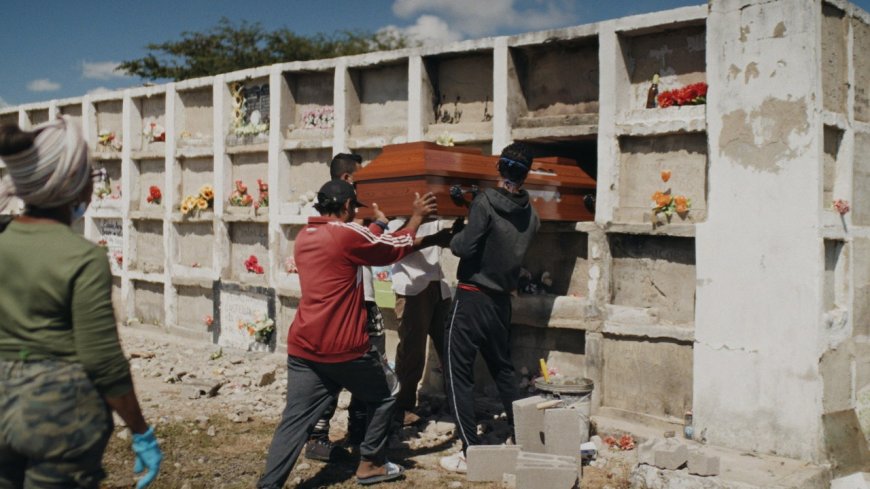Offering Dignity for Those Who Die Alone in “People Like Us”
The New Yorker DocumentaryPedro Samper’s short film follows a woman who operates a cemetery in Colombia for people who die, mostly Venezuelan migrants, without anyone to see their burial.Watch “People Like Us.” The New Yorker DocumentaryView the latest or submit your own film.Sonia Bermúdez divides her time between two cemeteries. In the town of Riohacha, Colombia, she manages the Central Cemetery, a quiet maze of white-walled mausoleums decorated with crosses and floral arrangements. On the outskirts of Riohacha, she operates her own cemetery, People Like Us, a resting place for people who die without anyone to see to their burial. Many of them are Venezuelan migrants, millions of whom have entered Colombia in recent years, fleeing the crisis in their home country. People Like Us looks nothing like the Central Cemetery. A row of cinder-block mausoleums stands in the middle of a dry field, full of swirling dust and the noise of wind and a nearby roadway. But in this rough and ready setting, Bermúdez offers the same care and dignity to the deceased. Throughout Pedro Samper’s film, Bermúdez’s complex personality becomes clear—she is both tough and profoundly empathetic, offering songs, solace, and advocacy to people who are grieving the loss of a loved one, and to those who have died without anyone else to mark their passage.

View the latest or submit your own film.

Sonia Bermúdez divides her time between two cemeteries. In the town of Riohacha, Colombia, she manages the Central Cemetery, a quiet maze of white-walled mausoleums decorated with crosses and floral arrangements. On the outskirts of Riohacha, she operates her own cemetery, People Like Us, a resting place for people who die without anyone to see to their burial. Many of them are Venezuelan migrants, millions of whom have entered Colombia in recent years, fleeing the crisis in their home country. People Like Us looks nothing like the Central Cemetery. A row of cinder-block mausoleums stands in the middle of a dry field, full of swirling dust and the noise of wind and a nearby roadway. But in this rough and ready setting, Bermúdez offers the same care and dignity to the deceased. Throughout Pedro Samper’s film, Bermúdez’s complex personality becomes clear—she is both tough and profoundly empathetic, offering songs, solace, and advocacy to people who are grieving the loss of a loved one, and to those who have died without anyone else to mark their passage.


























































